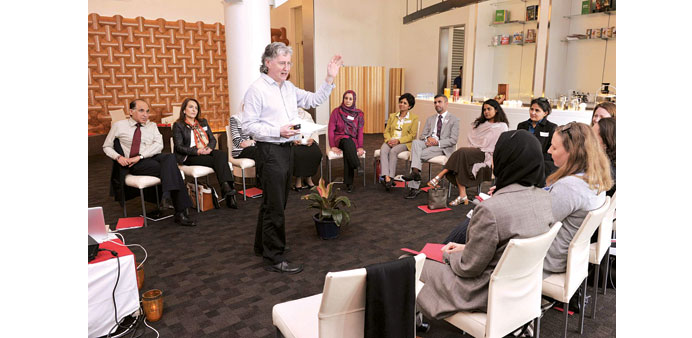Ways to effectively integrate complementary and alternative treatments with conventional medicine were explored at a symposium hosted by Weill Cornell Medical College in Qatar (WCMC-Q). The symposium was attended by more than 200 healthcare professionals.
The symposium, co-ordinated by WCMC-Q’s Division of Global and Public Health, featured speeches by healthcare experts on a variety of integrative medicine topics such as acupuncture, mind-body medicine, and nutritional and herbal supplements. Strategies for enabling self-care and building therapeutic alliances with patients were also discussed.
The symposium, which had the theme ‘Integrative Medicine: A Refreshing Approach to Optimum Health’, explored the positive aspects of alternative therapies, but also the dangers and risks they can pose to patients.
The relatively new movement towards ‘integrative medicine’ encourages physicians to speak to their patients to ensure that any evidence-based alternative therapies they are using complement conventional therapies and do not endanger health by conflicting with prescription drugs, for example.
Dr Ravinder Mamtani, professor of Healthcare Policy and Research at WCMC-Q, explained: “As physicians, we have a responsibility to engage empathetically with patients to discover the complementary and alternative therapies they might be using. One compelling reason for this is that research has shown that a large number of patients make use of complementary therapies, so it would be remiss to ignore this factor.”
Dr Javaid Sheikh, dean of WCMC-Q, gave the keynote address. This followed remarks by Dr David Reilly, consultant physician at the National Health Service Centre for Integrative Care in Glasgow, Scotland, who spoke on self-care, wellness enhancement and human healing.
Dr Sheikh said: “It is extremely gratifying to welcome so many healthcare professionals to WCMC-Q to discuss and explore the impact of complementary and alternative therapies, which is an absolutely crucial issue for healthcare providers in the 21st century. As preventative medicine and self-care become increasingly important, we have a duty to accommodate the complementary therapies used by patients, to understand how they can be beneficial and to raise a warning flag when they could be harmful.”
Dr Mamtani also spoke about practical measures for the integration of complementary medicine into conventional healthcare. The symposium concluded with an interactive Q&A session moderated by Dr Sohaila Cheema, director of the Division of Global and Public Health at WCMC-Q.

Dr David Reilly speaks at the symposium.
